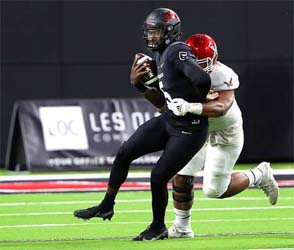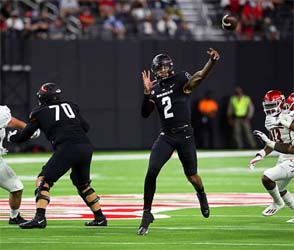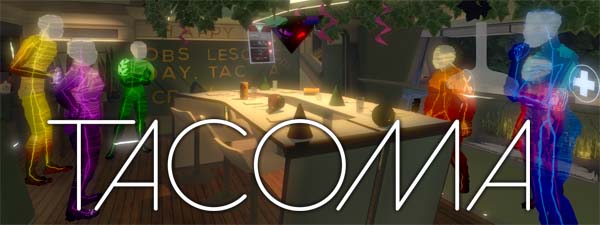I don't think that Capcom and Naughty Dog realized just how topical their 2020 releases of Resident Evil 3 and The Last Of Us Part 2 would turn out to be. Both games were released in the spring and summer, as a strange novel coronavirus (believed to have jumped from Chinese bats to people) began to spread within the United States and the rest of the world. Both games are about zombie apocalypses, and were released at a time in which large portions of the global economy had been shut down, and residents were expected to essentially shelter in place in their homes for weeks or months to prevent the spread of the pandemic. The 2020 pandemic (which is still ongoing 18 months later, despite the widespread availability of multiple vaccines), provided me with some unexpected context on these two games.
Check out the video essay version of this post on YouTube.
Both games are zombie apocalypse games, and zombie fiction is often based around fears and anxieties of societal collapse in one form or another. The original Night Of The Living Dead channeled the anxieties of nuclear Armageddon, and filtered them through the lenses of both McCarthy era Communist witch-hunts and a degree of racial tension. George Romero's Dawn Of The Dead channeled fears that consumerist culture would lead to toxic behavior that is not only self-destructive to the individual, but also to society at large. Zombies in other fiction might represent anxieties about racism, sexism, socialism, technology gone amok, and so forth.
Zombie fiction is usually inspired by contemporary fears surrounding societal collapse.
Video game zombies are no different, and they can represent any of those anxieties from a simple narrative standpoint. Because games are an interactive experience, zombie games can even explore anxieties about a loss of individual autonomy in ways that non-interactive media would struggle to approach. But I'm not here right now to talk about zombie games in general. I want to talk specifically about the pare of blockbuster zombie games that released last year, during the height of a real-life pandemic.
Both Last of Us games express concerns about the increasingly myopic "us and them" mentality in American culture and politics and the apparent inability of many people to empathize with others and see their point of view -- or even their humanity. And Resident Evil, as a series, channels anxieties about the self-destructive nature of the corporate desire to make profit at all costs, and then use their vast wealth and lobbying power to cover up their unethical activities.
Regardless of the messages intended by the developers, playing both of these games in 2020 made it really hard for me to not look at them both through the lenses of my own anxieties about the contemporary pandemic situation that we saw (and continue to see) ourselves in. It was a situation that neither game's developers could have foreseen (even though scientists, public health experts, and futurists have been sounding the alarm bells for the inevitability of pandemics in our increasingly globalized world). Anyway, since neither Capcom nor Naughty Dog could foresee that the games would launch in the middle of a real-world pandemic, they didn't really design their games around the ideas and anxieties of a real-life pandemic, and I think that shows through clearly in both games.
Neither REmake3 nor The Last of Us 2 are really about the pandemics of their settings.
After all, it would be so much easier to deal with a pandemic if we could clearly see the spread of the disease in the way that characters can in Resident Evil and The Last of Us. It would be so easy to isolate and quarantine individuals if infection caused their skin to almost immediately start rotting, or if we could see with our naked eyes the little coronaviruses coming out of people's mouths and noses when they cough, sneeze, or breath. And it would be so much easier if the disease itself were only transmitted between people through invasive physical contact such as a bite. But none of that is true in this real-life COVID pandemic. In light of a real-world pandemic, it seems almost silly that the fictional pandemics of Resident Evil and The Last Of Us could possibly lead to such widespread societal collapse, and the pandemic itself is of little concern to the player.
To be clear, what follows represents my personal contextualization from playing Resident Evil 3 and The Last of Us Part II during the COVID pandemic. These impressions do not represent my opinions on the actual quality of the games on their own merits. You can check out my reviews of both games, or check out my video on the "Lessons Capcom Learned for Resident Evil 3". I understand that neither game is about the pandemic. All I'm saying is that having played them during a pandemic highlighted just how not about the pandemic they actually are.
The lessons Capcom learned for Resident Evil 3.
Needless to say, there will be some minor spoilers for Resident Evil 3 (remake) and both Last of Us games. There will also be some spoilers for Metal Gear Solid V and Death Stranding. Reader discretion is advised.
[More]

The COVID-19 pandemic prevented me from going to the UNLV home football games in their first year at the new Allegiant Stadium. But being vaccinated, I am planning on attending this year, and did go to the home opener this week. It was yet another embarassing disappointment. Worse yet, I suspected it would be, and I wanted to bet on Eastern Washington to win the game, but the stupid sportsbook wasn't taking any action on the game. I guess they don't trust UNLV's football team any more than I do.
The offense was completely unable to move the ball in the first half, due largely to completely incompetent play from starting quarterback, Justin Rogers (transfer from TCU). Right off the bat, coach Arroyo dialed up some vert routes and got the two-on-one matchup against the safety that he and Rogers wanted, Rogers saw it, but his pass was low and inside, instead of high and away from the defender. It wasn't intercepted, but it might was well have been because the team couldn't get a first down anyway.
This happened several more times throughout the first half. And when Rogers wasn't failing to throw the ball deep, he was throwing gutterballs to the feet of his open underneath receivers. I don't know if this was a case of the jitters or what, but Rogers clearly did not have his head in the game. The receivers were clearly frustrated. So were the fans. But apparently, coach Arroyo wasn't because Rogers started the second half as well, and didn't play any better.
I don't know why it took so long for coach Arroyo to recognize that his starting quarterback was incapable of running the offense, and why it took him so long to put in the backup. I probably would have switched to the backup in the second quarter. I was willing to give Arroyo a lot of slack last year because COVID threw a wrench in everything in 2020, but there's no more excuses this year. That inability to recognize the need to make a change is a real concerning red flag for Arroyo's future as head coach.
I was also concerned with Arroyo's insistence on continually calling screen passes to wide receivers, even though Eastern Washington was clearly prepared for them and jumped every one of them for a loss or short gain. Yet he still played soft coverage against Eastern Washington running those same screens for large chunks of yards all night. His play-calling also didn't help the struggling Rogers, as Arroyo repeatedly called deep shot plays without any underneath checkdowns for Rogers to fall back on if the play didn't break downfield. It may only be his second year, but Arroyo is already on thin ice as far as I'm concerned.
 Photo credit: Steve Marcus, Las Vegas Sun.
Photo credit: Steve Marcus, Las Vegas Sun.
 Photo credit: Steve Marcus, Las Vegas Sun.
Photo credit: Steve Marcus, Las Vegas Sun.
Justin Rogers was inept at quarterback and had to be replaced with the dazzling Doug Brumfield.
When Rogers was finally pulled midway through the third quarter, backup Doug Brumfeild looked brilliant and almost single-handedly saved the game for the Rebels. He threw up one prayer ball to double coverage in the endzone on a third and, like, 30. There were two receivers uncovered underneath. They wouldn't have gotten a first down, but they at least would have made the field goal attempt easier. The kicker (who was probably UNLV's co-MVP) made the kick anyway, so I guess it's moot, but I felt like that prayer ball was Brumfield's only legit bad decision the entire game. Other than that, he was damn near perfect. Every pass he threw was right into the receivers' hands. It's just too bad that the receivers had trouble reeling in the laser beams he was throwing, and dropped several passes, including a couple third down ones. One pass even went off the hands of a receiver and right into the hands of a waiting safety. [More]
49389006-d67f-4036-be04-5344f50f97e1|0|.0
Tags:UNLV, University of Nevada Las Vegas, Eastern Washington University, Marcus Arroyo, Las Vegas, football, college football, Allegiant Stadium, Justin Rogers, Doug Brumfield, Nohl Williams, Charles Williams, targeting, penalty, COVID-19, pandemic

Here's another short sci-fi game from my Steam backlog. Tacoma is Fullbright's sci-fi follow up to its masterful walking sim Gone Home. This time around, instead of playing as a young girl discovering the secrets of your family, you play as an agent of a corporate conglomerate sent to retrieve the company's A.I. hard drive from a defunct space station in which an emergency threatened to kill the entire crew. Instead of reading notes and journal entries, you instead replay holographic representations of logs that the station's onboard A.I. recorded of conversations between the station's crew members.
You have to eavesdrop on recorded conversations as holograms move around the station.
The whole process is much more active and player-driven than the exposition of Gone Home (and other walking sims) because the holographic recordings of the characters move around the stations and converse in real time. You don't just walk into a room and read a conspicuously-placed note or listen to passive narration. You'll have to follow the characters between rooms, and keep track of multiple conversations at once as the characters come and go, and as they split up from large group meetings and start to have smaller, more private conversations. Each recording will usually have 2 or 3 independent conversation threads for you to follow. As you follow each character around, you'll also be spying on their personal text messages and emails.
This gives a greater sense of participation from the player (compared to many other walking sims) and provides a greater illusion that you are solving a mystery. That being said, there's nothing too challenging about finding and listening to all the possible conversations. They aren't elaborate puzzles that will take time to figure out. You just follow each character around the space and listen to them. It keeps the player interacting with the game space without ever applying a high bar for progress.
Don't expect to be stumped by the puzzles.
Without spoiling too much, there is only one ending, and you aren't going to be punished for not uncovering all the available evidence. The worst aspect of the game's "walkign sim" nature is that you're also never asked to apply any of the knowledge that you acquire from your investigations other than a handful of numeric combination codes for unlocking doors and the like. These codes are basically just progress gates to provide the illusion that the game has "puzzles", but the early exposure to these key codes will further encourage the player to snoop around more thoroughly for potential clues to future puzzles or progress gates. It isn't very intellectually challenging, but it does encourage the player to pay more attention.
[More]
ad0da423-9efe-41a3-b0fc-37ab8db4fe16|0|.0
Tags:Tacoma, Fullbright, science fiction, walking simulator, artificial intelligence, corporate culture, stock market, Amazon, Tyson Foods, COVID-19, pandemic
My friends and family have always found that video games and board games are always good go-to gifts for me during the holiday season (which for us, starts in the fall, as my partner and I both have birthdays in September and October). 2020 was a bit different, however. For one thing, the COVID-19 pandemic meant that we weren't able to get groups together for tabletop gaming nearly as often as we used to. The pandemic didn't stop us from tabletop gaming altogether, but we restrained our play to being with only a few regular players, and even then, played mostly 2-player games in order to avoid having multiple house guests at a time. We even sometimes wore masks while playing, just as an added precaution.
It wasn't that I didn't want new board games (or expansions to games I already have); rather, we just weren't sure when I'd ever be able to play them. For example, I did receive the new Crusader Kings board game by Free League Publishing. Hopefully, I'll have an opportunity to play it sometime soon, and be able to write a review for it to go along with my review of the video game.
But video games were not a hard purchase because of the pandemic. Sitting at home and playing video games is, after all, one of the best and safest pass-times during a pandemic. Rather, the big video game releases of this fall came with a lot of baggage or circumstantial reasons why I wasn't enthusiastic to buy them.
Lack of games didn't sell me on a PS5
First and foremost is the biggest of the big new releases this year: the new consoles. I've never been an XBox-player, so there was no interest in a new XBox to begin with. I am, however, interested in the PS5. But I wasn't rushing out to buy one because I'm not going to buy a new console if there aren't any exclusive new games to play on it. And since I wasn't rushing out to buy one, supply problems meant that it only got harder to find one. Honestly, I was surprised that the PS5 seemingly sold so well considering that there just wasn't all that much to play on it. My lack of enthusiasm for the new console meant that even though my partner considered trying to buy one, she eventually decided against it.
The only 2 games on PS5 worth playing are not worth buying a new console.
The big releases for the PS5 were the Demon's Souls remake and Miles Morales. So far, they are the only 2 games worth playing on the PS5, which is why I saw them bundled together with the console at multiple retailers and resellers. I was interested in both, but not enough to drop $400 on a new console -- especially not during a time of economic uncertainty. I'm sorry Sony, but if you want to sell me on a new console, you got to have something better than a remake of a game from 10 years ago (and 2 console generations ago) that I already played the hell out of back in the day, and a sequel to game from 2 years ago that looks like it's mostly just more of the same (and which is also available on the last-gen console anyway). Every other big release for the PS5, from Assassin's Creed: Valhalla to Cyberpunk: 2077 was also released on other platforms, so again, there was no need to rush out and buy a PS5 to play these games -- which I wouldn't have done anyway because both of those games have their own baggage, which I'll get to later in this post.
I only bought a PS4 because of Bloodborne, and the PS5 has so far lacked a similar console-selling exclusive. Maybe they'll have one eventually. Maybe if Elden Ring were a PS5-exclusive, I'd be in more of a hurry to secure myself a console. But as far as I know, that game is set for release on PS4 and will also be available on PC, so I don't need a PS5 in order to play it, the way that I needed a PS4 to play Bloodborne.
WARNING:
The following contains sexual content that may not be safe for work or children, including descriptions of alleged criminal behavior at Ubisoft, and a screenshot from Cyberpunk 2077 that contains nudity. Reader discretion is advised. [More]
335dc6e6-b168-4584-a8e8-a59c1641ddbf|1|5.0
Tags:corporation, abuse, exploitation, pandemic, COVID-19, holiday, birthday, Christmas, gift, board game, Crusader Kings, Sony, PlayStation, PS5, DualSense controller, haptic feedback, Death Stranding, Demon's Souls, Marvel's Spider-Man: Miles Morales, Ubisoft, Assassin's Creed: Valhalla, Yves Guillemot, sexual assault, sexual harassment, Star Wars: Squadrons, CD Projekt Red, Cyberpunk 2077, Keanu Reeves, micro-transactions, crunch
I'm not a particularly voracious reader of fiction. Most of my reading is in the form of books and magazines about science or history. But I do try to squeeze in a novel here and there -- usually something from the canon of classics. I never write about them on this blog because I doubt I have anything of value to say about them. Besides, being predominantly a video game writer means that I lack the vocabulary for expressing critical opinions of non-interactive media. I struggle to get by with the reviews of movies and TV shows that I write.
However, I read a rather unique novel over the summer that I do feel I can discuss. In large part, my willingness to talk about this particular novel comes from the fact that this particular novel actually has an interactive element to it that makes some of my video game criticism lingua more applicable. The novel in question is House of Leaves by Mark Z. Danielewski, published by Pantheon Books in 2000.
I was introduced to this book by a YouTube video from Noah Caldwell-Gervais about the 2019 Blair Witch game on the XBox. Towards the end of the video, he talks about the conclusion of the Blair Witch game, which involves surreal, looping hallways. He goes on to talk about the recent fad of looping hallways, which has been seen in games ranging from Blair Witch to Layers of Fear to P.T.. He then talks about a novel which may have served as an inspiration for these games, and which attempts to simulate the feeling of being lost in a corridor (and the ensuing madness that it brings on) through the structure and organization of the text itself. This piqued my interest, and I promptly hopped onto Amazon and ordered a copy of the book. I was going to have a lot of downtime during the stay-at-home lockdowns of the COVID-19 pandemic, and needed something to help kill the time.
I was inspired to read House of Leaves after watching Noah Caldwell-Gervais' critique of Blair Witch.
Indeed, I ended up enjoying House of Leaves, which has become a sort of paradigm shift for me in terms of how the written word can engage the reader. For me, House of Leaves is a watershed work of literature, in much the same way that Demon's Souls was a watershed video game. House of Leaves is my first encounter with true "ergodic text" (unless you want to count the "Choose Your Own Adventure" books I read as a child) and has redefined (for me) how a textual work (such as a book) can go about engaging its audience, and how it can tell a story in a more interactive manner than other peers in the respective media.
It's impossible to discuss this book and its merits without going into spoiler territory. As such, there will be some minor or moderate spoilers in this review. I'll try to keep them as light as possible, but consider yourself warned.
Lost in the pages
House of Leaves employs several framing devices to tell multiple narratives simultaneously. At the center is a documentary movie, called The Navidson Record about a family (named the Navidsons) exploring a supernatural house that is bigger on the inside than it is on the outside, and which regularly changes its interior size and geometry in increasingly impossible ways. This movie is being reviewed and researched by a third party named Zampanò, who is writing a book about the documentary in the hopes of determining if the documentary depicts a real supernatural phenomena, or if it is the work of Hollywood trickery. Zampanò dies while working on this book, and his research is recovered by a third party named Johnny Truant, who attempts to piece together Zampanò's research and finish his work. Both Zampanò and Johnny become increasingly obsessed with The Navidson Record, and eventually go mad.
To further obfuscate the work, the introduction establishes that the original version of the work was a series of scattered pages, photographs, video clips, and audio recordings that were passed around on paper, VHS, and cassette tapes before being posted piecemeal to internet message boards in the mid-to-late 90's. The scattered documents were eventually collected by a book publisher and edited together into a single published work, which is implied to be the novel that you are holding in your hand.
Danielewski employs multiple framing devices to tell between 2 and 4 concurrent narratives.
Zampanò transcribed the events of the film into text, along with his own interpretations and commentary. Then Johnny reviewed Zampanò's notes, and added his own interpretations and commentary on top Zampanò's commentaries, while also maintaining a journal of his daily life (and decline in sanity).
[More]
c8d76660-b100-46c7-9774-8b927318f2f9|3|5.0
Tags:House of Leaves, Mark Z. Danielewski, novel, ergodic text, horror, gothic horror, cosmic horror, romance, hallway, abyss, drug addiction, schizophrenia, strategy guide, Noah Caldwell-Gervais, Blair Witch, COVID-19, pandemic
|

| 12 | | | | | | | 60 | | 11 | | | | | | | 55 | | 10 | | | | | | | 50 | | 09 | | | | | | | 45 | | 08 | | | | | | | 40 | | 07 | | | | | | | 35 | | 06 | | | | | | | 30 | | 05 | | | | | | | 25 | | 04 | | | | | | | 20 | | 03 | | | | | | | 15 | | 02 | | | | | | | 10 | | 01 | | | | | | | 05 |
|